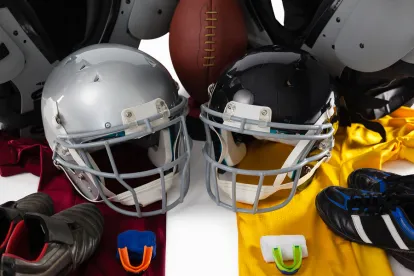On April 11, 2019, the Internal Revenue Service (the “IRS”) issued Revenue Procedure 2019-18, creating a safe harbor that allows professional sports teams to treat trades of personnel contracts (including contracts for players, coaches and managers) and draft picks as having a zero value for determining gain or loss recognized for federal income tax purposes if certain requirements are met.[1] While the safe harbor applies to trades entered into after April 10, 2019, teams can choose to apply it to any open taxable year.
Like-Kind Exchange Treatment Prior to the 2017 Tax Reform
By way of background, prior to P.L. 115-97, commonly referred to as the Tax Cuts and Jobs Act, (the “2017 Tax Reform”), trades were treated as exchanges of like-kind property used in a trade or business under Section 1031.[2] Accordingly, teams were generally able to avoid current recognition of income on a trade to the extent no cash (or other property) was received.
Aftermath of the Legislation Prior to IRS Relief
The 2017 Tax Reform limited like-kind exchange treatment under Section 1031 to real property (i.e., land and buildings). As a result, absent the safe harbor, teams generally would have to recognize gain or loss based on the difference between the fair market value of the personnel contract or draft pick received and the tax basis of the personnel contract or draft pick given up. A team’s basis in a personnel contract or draft pick is generally equal to the team’s cost to acquire it, including certain payments for future services (such as a signing bonus), less depreciation. However, the value of a personnel contract or draft pick at any given time is difficult to measure.
IRS Grants Relief in Revenue Procedure 2019-18
Applying a “real world view,” the IRS recognized in Revenue Procedure 2019-18 that assigning an objective monetary value to a personnel contract or draft pick would result in “highly subjective, complex, lengthy, and expensive disputes between professional sports teams and the IRS.” By assigning zero value to these assets, teams are allowed to conduct trades similarly to the way in which they did prior to the 2017 Tax Reform. Other rules regarding the tax treatment of sales and exchanges continue to apply, including Section 1231 (rules for determining whether gain or loss is capital or ordinary) and Section 1245(a)(1) (depreciation recapture rule).
Requirements to the Safe Harbor’s Application
Under the safe harbor, professional sports teams may treat the value of personnel contracts and draft picks as zero in a trade if certain conditions are satisfied:
- First, all parties to the trade that are subject to U.S. federal income tax must use the safe harbor.
- Second, each party to the trade must transfer and receive a personnel contract or draft pick. In addition, no team may transfer any other property (other than cash) as part of the trade.
- Third, no personnel contract or draft pick on any side of the trade may be an amortizable Section 197 intangible. Given the number of teams that have been sold in recent years, this limitation could be problematic and seems to raise all of the issues the IRS sought to avoid by issuing the revenue procedure.
- Fourth, the financial statements of all teams that are party to the trade may not reflect assets or liabilities resulting from the trade other than cash.
Tax Consequences of the Safe Harbor’s Application
The tax consequences under the safe harbor to the teams that are a party to a trade are as follows:
- Because the value of each personnel contract or draft pick is zero, no gain or loss will be recognized by a team if it does not receive cash and does not have a tax basis in the personnel contract or draft pick given up.
- Any cash received by a team as a part of a trade will be included in the team’s amount realized and will be recognized as gain to the extent it exceeds any unrecovered tax basis in the personnel contract or draft pick transferred in the trade.
- A team will generally recognize a loss if it has unrecovered tax basis in the personnel contract or draft pick it transferred (e.g., if the traded player was paid a signing bonus that the team had not yet fully depreciated) that exceeds the amount of any cash the team received in the trade.
- A team that provides cash as part of a trade will acquire a tax basis in the personnel contract or draft pick it receives equal to the amount of such cash. This tax basis may be depreciated over the life of the asset acquired. If more than one personnel contract or draft pick is received, the basis must be allocated to each personnel contract or draft pick equally, regardless of the subjective value the team may place on each.
- A team that does not provide cash as part of a trade will have a tax basis of zero in all personnel contracts or draft picks received.
The safe harbor only applies to trades of personnel contracts or draft picks among teams in professional sports leagues. It does not apply to any other transaction, including to trades of a team for another team or a sale of a team. We expect that a standard set of representations and warranties and covenants will develop in response to the revenue procedure.
* * *
Taxpayers should consider the effects of the safe harbor and plan accordingly.
[1] For purposes of this discussion, any references to “team” or “teams” are references to teams in a professional sports league, and any references to “trade” or “trades” are references to trades of personnel contracts and rights to draft picks by teams in a professional sports league.
[2] All references to “Section” are references to the Internal Revenue Code of 1986, as amended.








 />i
/>i

